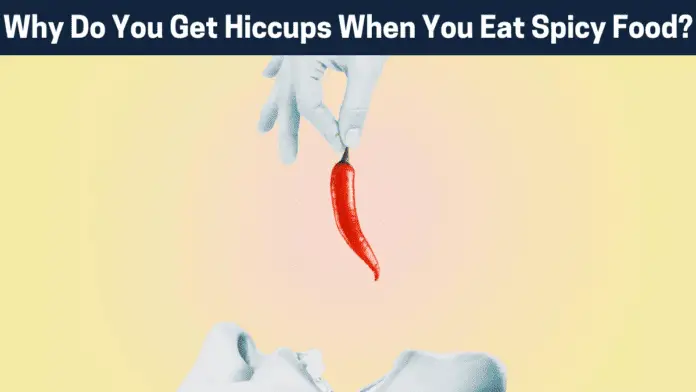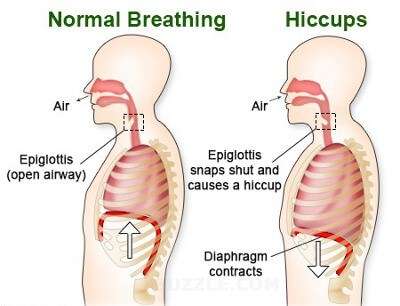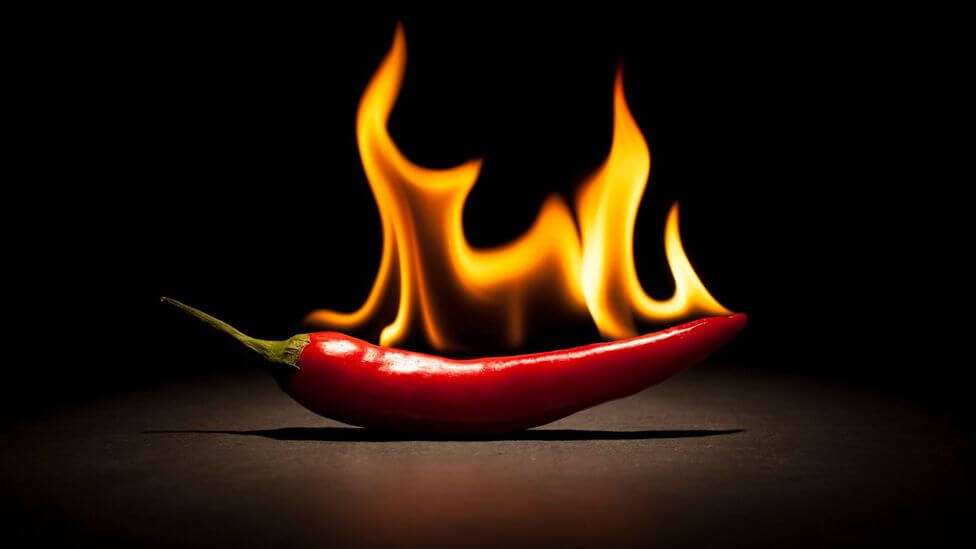
Have you ever eaten a spicy dish only to find yourself with hiccups shortly after? If yes, you’re definitely not alone. Many people experience hiccups after eating spicy food, and this article aims to explore why this phenomenon occurs. So, why do you get hiccups when you eat spicy food? Let’s take a look.
What Are Hiccups?

Before we can answer the question of why we get hiccups when we eat spicy food, it’s important to know exactly what hiccups are. Hiccups are involuntary spasms in your diaphragm (the muscle that separates your chest from your abdomen), which cause a sudden rush of air into your lungs that creates a “hiccup” sound. They generally last for several minutes before going away on their own, although they can occasionally last for hours or days in rare cases.
Why Do You Get Hiccups When You Eat Spicy Food?

So, why do you get hiccups when you eat spicy food? Well, there are two main theories as to why this might happen. The first is that the spice itself may irritate your esophagus and/or throat, leading to an involuntary contraction of the diaphragm muscles which causes the familiar “hiccup” sound. This is particularly likely if the spice was very intense or if it was accompanied by other hot or acidic foods such as citrus juices or vinegar-based dressings.
The second theory is that eating spicy food may cause changes in air pressure within your stomach and/or intestines which can lead to an involuntary contraction of the diaphragm muscles and subsequent hiccuping. This is particularly likely if you ate a lot of food in one sitting or if you ate too quickly without taking time to chew properly. It could also be due to gas buildup caused by certain types of spices or other ingredients in your meal such as onions or garlic (which contain fermentable sugars).
Finally, some experts believe that it could be due to an increase in blood flow to the stomach which triggers reflexive contractions of the diaphragm muscles—although this theory remains unproven at this point.
What Are Some Other Causes Of Hiccups?
Hiccups can be caused by many different things besides eating spicy food. For example, drinking too much alcohol or carbonated beverages can cause hiccups due to irritation of the diaphragm muscles. Eating large meals quickly or gulping down air while eating can also lead to hiccuping. Stress and excitement are other common triggers for hiccuping as well.
How To Avoid Getting Hiccups From Eating Spicy Food
If you find yourself getting hiccups after eating spicy foods, there are some steps you can take to reduce their occurrence:
- Slow Down Your Eating – Eating slowly gives your digestive system more time to process the spice and other ingredients in each bite so they don’t overwhelm it all at once. This also reduces gas buildup which can trigger hiccuping episodes!
- Limit Your Intake – If possible, try limiting how much spice you consume since that can irritate your esophagus and/or throat which can lead to involuntary contractions of the diaphragm muscles.
- Chew Thoroughly – Taking time to chew each bite thoroughly will help break down large pieces of food into smaller particles that are easier for your digestive system to process without causing any discomfort or irritation in your throat/esophagus area—which could lead to hiccuping episodes!
- Drink Water – Drinking water before and during meals helps keep everything moving through your digestive system and prevents any build-up of gas inside your stomach/intestines which could potentially trigger a bout of hiccuping afterwards!
- Avoid Carbonated Beverages – Carbonated beverages like soda have been known to trigger bouts of hiccupping after meals due their tendency to create bubbles inside our digestive systems—so try avoiding them if possible!
Conclusion
Hiccups after eating spicy food are fairly common experiences but they don’t have an exact cause pinpointed yet – though there are several theories ranging from irritation caused by spices themselves right through air pressure changes within our guts! While these theories remain unproven for now, there are still various steps we can take both before and during our meals (such as slowing down our eating habits & chewing thoroughly) which should help reduce occurrences of post-meal hiccupping episodes – so give them a go next time you’re planning on having something spicy! Why do you get hiccups when you eat spicy food? While there’s still no definitive answer yet, hopefully exploring this phenomenon has helped shed some light on what might be causing it – so be mindful next time you dive into something fiery!
Read Also: How to Get Rid of Mucus in Throat for Singing
FAQ
Why do you get hiccups when you eat hot food?
Hiccups can be triggered by eating hot food, as the heat can irritate the diaphragm and cause it to spasm. Eating too quickly or too much can also cause hiccups.
Why do you get hiccups after eating spicy food?
Spicy foods can sometimes irritate the throat and stomach, which may lead to hiccups. Eating too much or too quickly can also trigger hiccups.
Why hiccups occur when eating spicy food?
Eating spicy food can sometimes irritate the throat and stomach, leading to a spasm of the diaphragm that causes hiccups. Eating too much or too quickly can also trigger hiccups.
Does spicy food cause hiccups?
Spicy foods may contribute to hiccuping in some people, as they may irritate the throat and stomach and cause a spasm of the diaphragm that leads to hiccuping. Eating too much or too quickly can also trigger hiccups.












